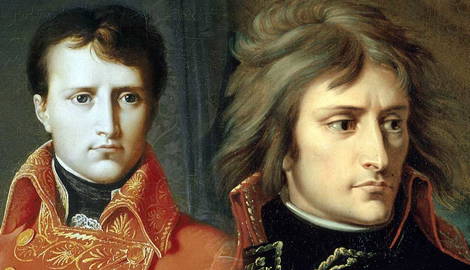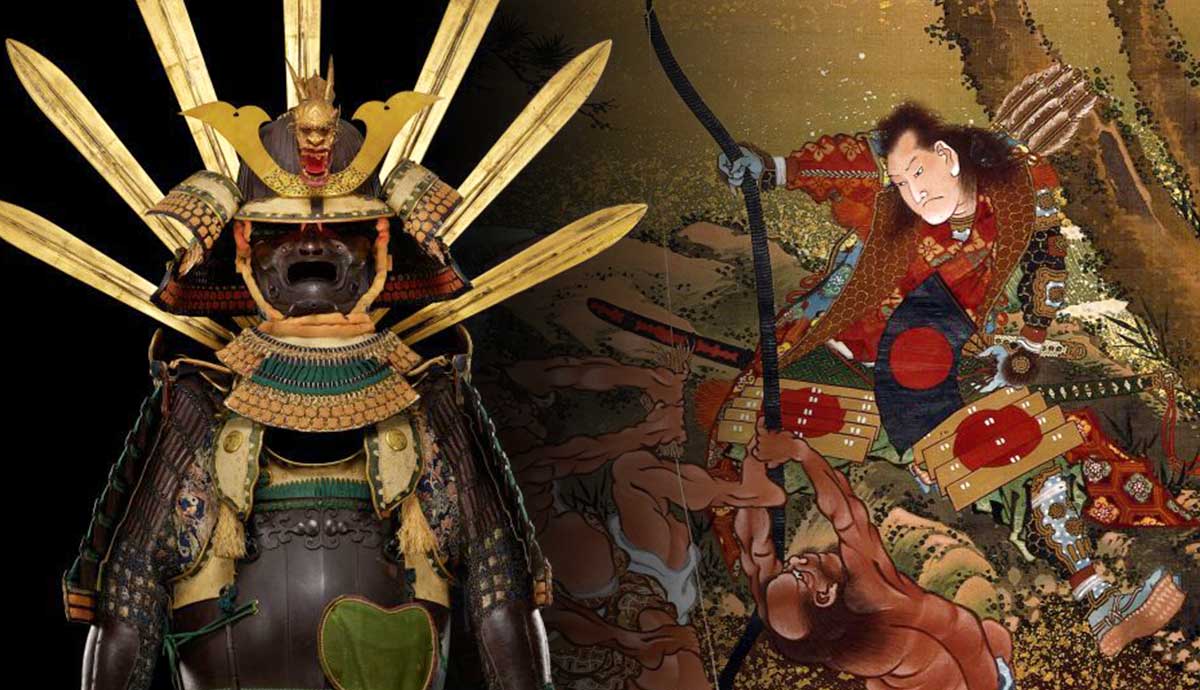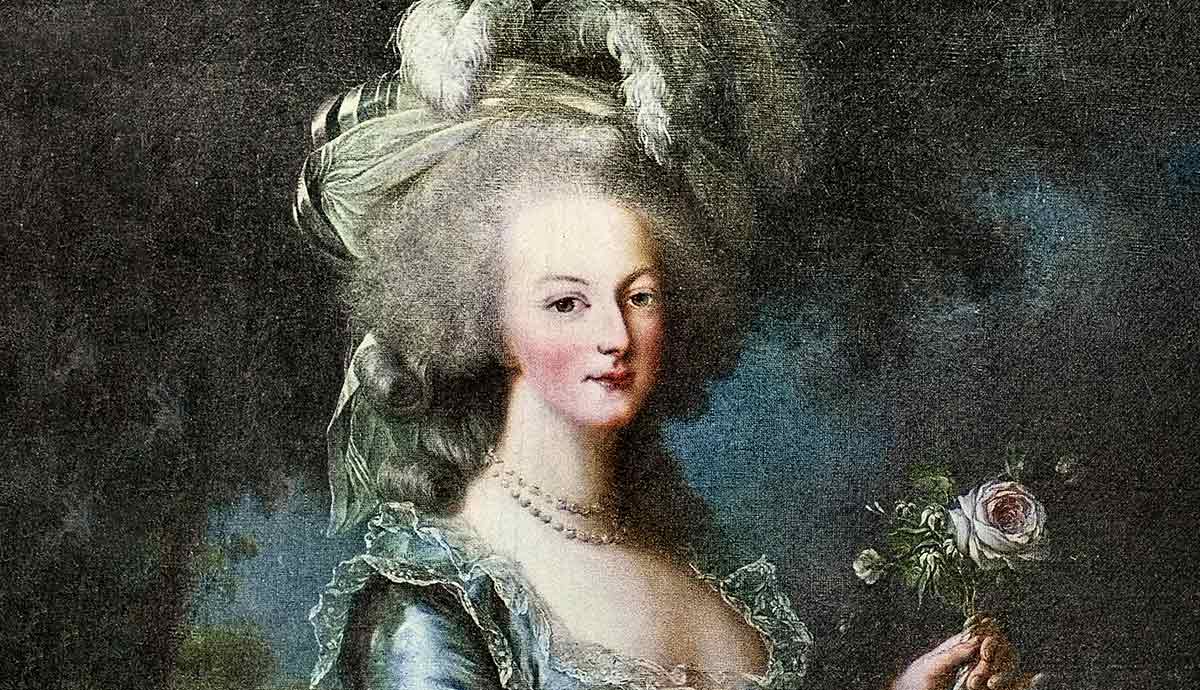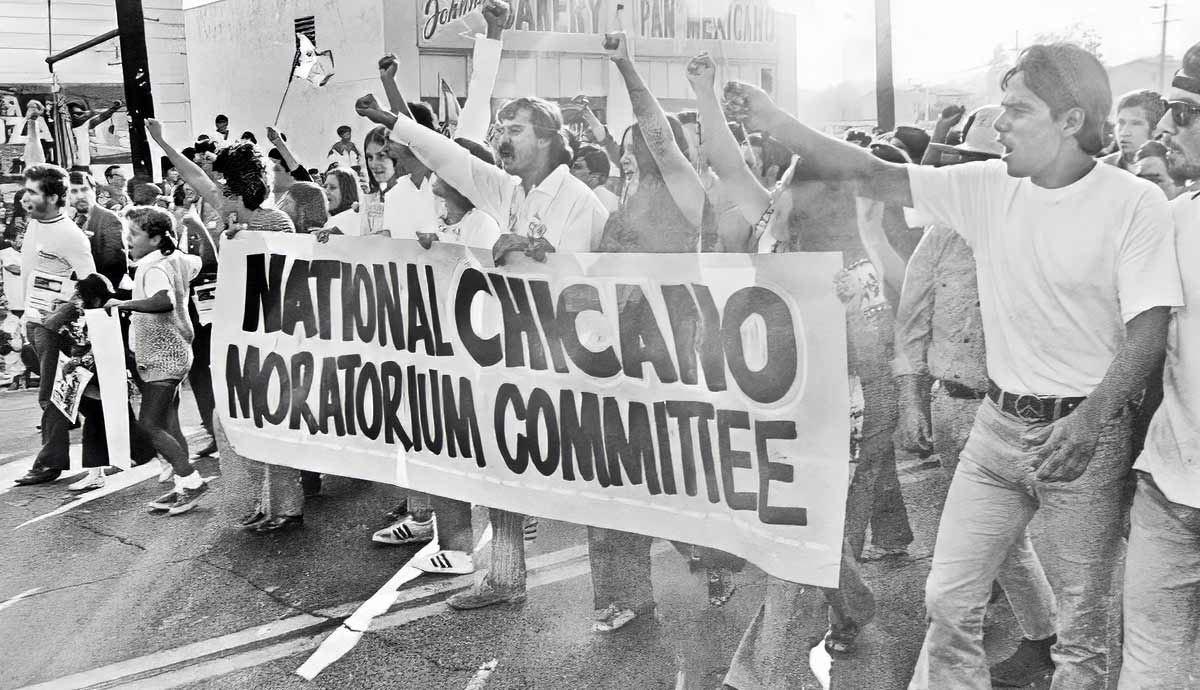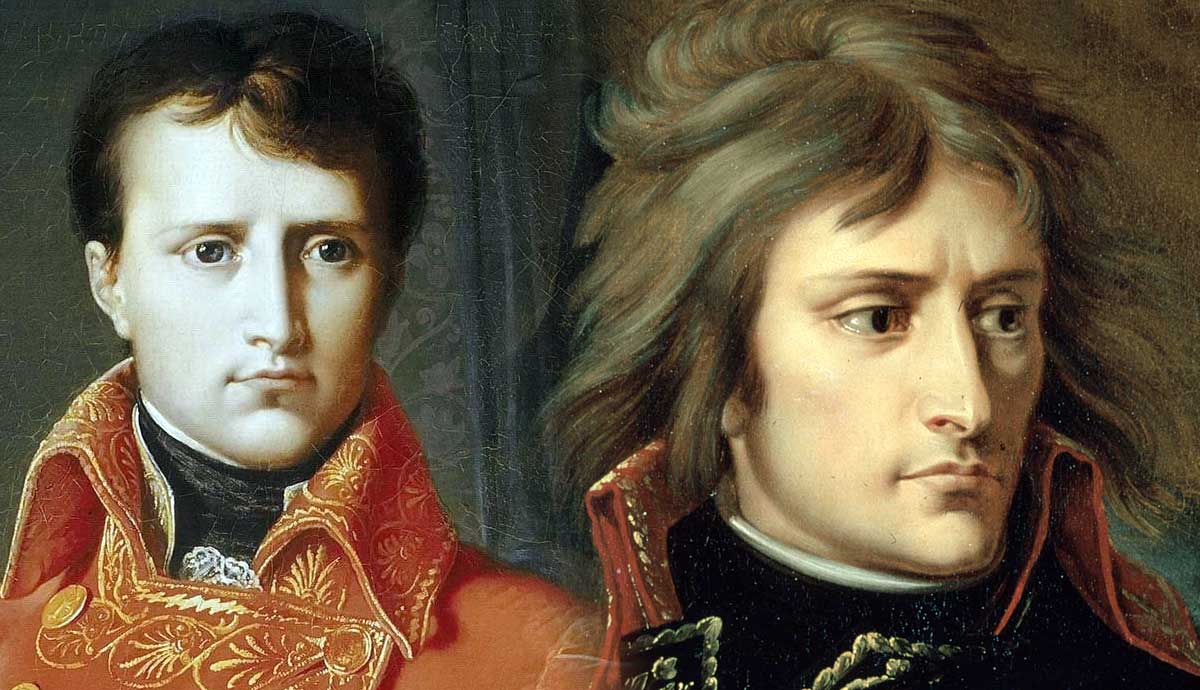
Born on the island of Corsica in 1769, Napoleon Bonaparte came to prominence as a brilliant military commander during the French Revolution. After taking power in Paris in November 1799, Napoleon made himself emperor in 1804. He led a series of victorious campaigns to dominate Europe by 1807, but his ill-fated Russian campaign of 1812 contributed to his downfall in 1814. A brief restoration in 1815 came to an end with the Battle of Waterloo, and he died in exile on the remote island of Saint Helena in 1821.
How Did Napoleon Rise to Power?

Napoleon Bonaparte was born in Ajaccio on the Mediterranean island of Corsica on August 15, 1769. His father, Carlo di Buonaparte, briefly served as secretary to Corsican independence leader Pasquale Paoli in the 1760s. Corsica had been a colony of the Italian city-state of Genoa, and in 1768, the Genoese sold their claim on the island to France. After Paoli was defeated by the French and went into exile in England, Carlo decided to transfer his allegiance to France.
Although he studied as an artillery officer in France, Napoleon’s relatively modest background limited his prospects for high command, and he was an ardent Corsican nationalist in his youth. However, Napoleon’s desire to play a role in Corsican politics during the early years of the French Revolution was denied by his childhood hero Paoli. Threats against his family in Corsica compelled the Bonaparte family to escape to mainland France.
Napoleon first came to prominence in the French Army during the Siege of Toulon in 1793. The young artillery officer identified key positions to site his guns in order to bombard Admiral Samuel Hood’s British fleet and force him to withdraw. This brought him to the attention of Paul Barras, who became the key figure in the republican government after the fall of Robespierre in August 1794. When a Royalist mob attacked Paris on October 5, 1795 (13 Vendemiaire in the French Republican Calendar), Napoleon fired canisters from his guns to disperse the rebels and earned the nickname General Vendemiaire.

Shortly after marrying Josephine de Beauharnais, Napoleon took command of the Army of Italy in the spring of 1796. The young General Bonaparte astonished Europe by defeating a string of Austrian armies in northern Italy. He was poised to strike at Vienna when he concluded the favorable Treaty of Campo Formio, in which the Austrians recognized the satellite republics established by Napoleon in Italy in exchange for control of the territories of the defunct Venetian republic.
In 1798, Napoleon embarked on a military and scientific expedition in Egypt. Despite early successes in defeating the Mamelukes and occupying the country, Napoleon’s army was isolated after the French fleet was destroyed near Alexandria by Admiral Nelson at the Battle of the Nile. Napoleon invaded Syria and Palestine and defeated much larger Ottoman armies, but was forced to withdraw in May 1799 after failing to capture the port of Acre.
Despite a mixed record in Egypt, Napoleon had seen greater success than the French generals in Europe, as an Austro-Russian army commanded by Field Marshal Alexander Suvorov reversed Napoleon’s conquests in Italy. Bonaparte believed France needed a stronger government to turn the tide of the war. After slipping away from Egypt in August 1799, Napoleon was back in Paris by mid-October. He joined forces with the revolutionary theorist Emmanuel-Joseph Sieyès to overthrow the Directory on November 9, 1799, or 18 Brumaire, Year VIII in the Republican Calendar. Napoleon and his fellow plotters Roger Ducos and Sieyès were named first, second, and third consuls respectively.
Was Napoleon a Dictator?

While Napoleon and Sieyès worked on a new constitution, the final document was far closer to the former’s vision than the latter. Under the terms of the Constitution of Year VIII, promulgated on December 15, the government was dominated by the executive, consisting of three consuls serving ten-year terms. While Napoleon was confirmed as the first consul, Sieyès and Ducos were replaced as second and third consuls by the lawyer Jean-Jacques-Régis de Cambacérès and the politician Charles-François Lebrun, respectively. However, the second and third consuls’ power was advisory, and executive power was concentrated in Napoleon as first consul.
The new constitution severely weakened the legislature, which was now divided into three bodies. The Conservative Senate served as an “upper chamber,” made up of 60 to 80 members serving for life and appointed by the First Consul. The “lower chamber” was divided into the 100-member Tribunate and the 300-member Legislative Body. The former could debate laws but not vote on them, while the latter voted on the laws based on reports of the Tribunate’s deliberations. The constitution additionally established a Council of State appointed by the First Consul to advise the executive in administrative matters.
By concentrating so much executive power in his hands and weakening the legislature, Napoleon had effectively given himself dictatorial powers. In order to obtain popular legitimacy, Napoleon organized a referendum on February 7, 1800, which saw 3 million votes in favor and some 1,500 against. Subsequent research has shown that Napoleon’s brother and interior minister Lucien Bonaparte manipulated the vote tally to double the number of yes votes.

Napoleon recognized that his hold on power was shaky. Although he crossed the Alps to win a narrow victory at Marengo on June 14, 1800 to take back Italy from the Austrians, he did not want to be away from Paris for long. During the Second Italian Campaign, he was away from the capital for less than two months between May 6 and July 2.
Despite almost unlimited powers and his manipulation of the electoral process, Napoleon did not resemble the dictators of the 20th century. Although a military officer himself, his government was predominantly staffed by civilians rather than military officials. His political program was moderate, balancing the interests of radical revolutionaries and reactionary royalists.
Napoleon’s major accomplishment as a political leader was the creation of the Civil Code, later renamed the Napoleonic Code, in 1804. The Napoleonic Code forms the basis for the civil law systems in continental Europe, as opposed to the common law tradition in Britain and the United States.
The ten-year consular term, though indefinitely renewable, served as one of the few theoretical limitations on Napoleon’s power. In 1802, Napoleon removed this by revising the constitution to make himself First Consul for Life. Once again, the new constitution was adopted after a lopsided referendum. Napoleon’s decision to make himself First Consul for Life paved the way for his becoming emperor in May 1804. His powers remained largely unchanged, but the new imperial system enabled him to create a new aristocracy and revive the title of marshal, which he granted to 18 of his subordinates.
Who Defeated Napoleon?

Napoleon’s stunning victory at the Battle of Austerlitz in December 1805 against an Austro-Russian coalition army laid the ground for his domination of continental Europe by July 1807, when he signed the Treaty of Tilsit with Tsar Alexander I of Russia after defeating the Russian army at the Battle of Friedland.
In 1808, Napoleon intervened in Spain by deposing the Bourbon monarchy and installing his brother Joseph as king. Spanish armed opposition to Napoleonic rule marked the beginning of the Peninsular War. After a French corps was defeated by a Spanish force at the Battle of Bailén in July 1808, Napoleon personally led a large army into Spain in the winter of 1808-09. While the emperor’s efforts improved the situation for the French, he never returned to Spain and his subordinates were eventually defeated by a combination of Spanish and Anglo-Portuguese forces under Arthur Wellesley, later Duke of Wellington.
Napoleon suffered his first major defeat in 1809 as Austria resumed hostilities against France four years after Austerlitz. After occupying Vienna, Napoleon attempted to cross the Danube and was defeated by Archduke Charles of Austria at the Battle of Aspern-Essling on May 21-22, 1809, during which the emperor’s close friend and talented subordinate Marshal Lannes was killed. Although Napoleon was ultimately victorious in the campaign after defeating the Austrian archduke at Wagram in early July, the setback at Aspern-Essling demonstrated that the French army was no longer invincible, even with Napoleon in command.

In 1812, after increasing tensions over trade and the status of Poland, Napoleon invaded Russia with more than half a million men. The Russian commander-in-chief, Mikhail Barclay de Tolly, and his successor Mikhail Kutuzov recognized that they could not fight Napoleon while heavily outnumbered. While Napoleon entered Moscow in mid-September after the Battle of Borodino, he was forced to leave in October as winter approached. Napoleon’s army suffered terribly during its retreat due to cold weather, lack of supplies, and constant pressure from Russian light cavalry.
Following his Russian disaster, Napoleon organized a new army to take on the armies of the Sixth Coalition that had been formed against him. Although he defeated the Russo-Prussian army at Lützen and Bautzen in Saxony in May 1813, his refusal of Austrian peace terms encouraged the latter to join the Sixth Coalition in August, with Austrian general Prince Karl Philipp von Schwarzenberg in supreme command. Napoleon’s defeat at the Battle of Leipzig in October 1813 compelled him to abandon Germany and Italy. Although he fought a brilliant defensive campaign in February 1814, the coalition armies occupied Paris at the end of March.
After several months in exile on the island of Elba, Napoleon escaped to France and was restored to power on March 20, 1815. With almost the whole of Europe against him, Napoleon marched north against the Duke of Wellington and Prussian Field Marshal Blücher’s armies. After defeating Blücher at Ligny on June 16, Napoleon attacked Wellington’s Anglo-Dutch-German army at Waterloo on June 18. Wellington’s men held onto the ridge, and the arrival of Blücher’s Prussians during the late afternoon decisively turned the battle in the Allies’ favor.
Why Was Napoleon Exiled?

After the Sixth Coalition Allies occupied Paris in March 1814, the political institutions in France recognized the new reality and on April 3 deposed Napoleon as emperor. The following day, Napoleon agreed to abdicate on the condition of his succession by his infant son, the King of Rome. This was denied by the Allies, and on April 6, Napoleon agreed to abdicate unconditionally. The Senate duly restored the Bourbon monarchy under Louis XVIII, brother of the guillotined Louis XVI.
On April 11, Napoleon signed the Treaty of Fontainebleau and agreed to be exiled to the small Mediterranean island of Elba off the coast of Italy. He was to retain his title of emperor and was granted full sovereign rights over the island. He was even allowed to retain a small armed force of some 870 men and a navy consisting of a single ship, the Inconstant.
Although a considerable downgrade in status from emperor of the French, Napoleon’s exile in Elba was relatively lenient. While the British and Prussians wanted to punish Napoleon, Tsar Alexander of Russia wanted to make a show of magnanimity, and Emperor Francis of Austria was Napoleon’s father-in-law.

On February 26, 1815, after receiving reports of the unpopularity of Louis XVIII’s government in France, Napoleon escaped from Elba and landed in France. Although he restored his empire for approximately 100 days, he was forced to abdicate for a second time after his defeat at Waterloo. Napoleon knew that the Prussians intended to capture and kill him and was determined to stay away from their clutches.
Napoleon’s initial intention was to go to the port of Rochefort and find a ship that would take him to the United States. However, the port was blockaded by a British ship, HMS Bellerophon, and Napoleon had no choice but to throw himself at the mercy of Captain Frederick Lewis Maitland.
After boarding the Bellerophon on July 15, Napoleon requested passage to North America. When this was refused, he asked for a small estate in England. With Napoleon on board, the Bellerophon sailed to England and anchored off Plymouth as the British government discussed what to do with their famous prisoner.
After a few weeks, the British government decided to exile Napoleon to the remote island of Saint Helena in the South Atlantic. The British prime minister, Lord Liverpool, observed, “The island of St Helena is the ideal place to lock away such a character. In such a place, so far away, no scheming of any kind will be possible and, far from Europe, he will be quickly forgotten.” Napoleon was transferred to HMS Northumberland and arrived on October 15 after ten weeks at sea.
How Did Napoleon Die?

Napoleon spent the remaining five-and-a-half years of his life on St. Helena. He initially stayed at the Briars, the home of William Balcombe of the East India Company, and befriended his host’s younger daughter Betsy. He was then moved to the more spacious Longwood House but complained that it was damp and windy and demanded better conditions.
Napoleon spent his time on the remote windswept island working on his memoirs, which were recorded by his companions: Grand Marshal Comte Henri de Bertrand, General Comte Tristan de Montholon, chamberlain Comte Emmanuel de Las Cases, and General Gaspar Gourgaud. Napoleon initially enjoyed riding and taking walks, but within a year, his freedom of movement was severely restricted by Sir Hudson Lowe, the British governor of the island. Napoleon spent more time tending to his gardens at Longwood, designing sunken lanes to keep out of sight from the British sentries.
By late 1820, Napoleon’s health was in severe decline and he complained of regular abdominal pains. In early January 1821, construction of more suitable quarters at New Longwood House had been completed, but Napoleon refused to move in. By March, he had become so weak that he rarely left his bed. On April 15, Napoleon wrote a will, in which he claimed, “I die prematurely, assassinated by the English oligarchy and its assassin [i.e. Hudson Lowe]” and indicated his desire to be buried “on the banks of the Seine, in the midst of the French people, whom I have loved so well.”

On May 5, 1821, Napoleon Bonaparte died in his bed at Longwood House at the age of 51. An autopsy the following day determined that he had died from stomach cancer. Napoleon’s assertion that he had been assassinated by the British has inspired persistent theories that he was deliberately poisoned. Investigations in the 20th century found that Napoleon’s hair contained arsenic, seeming to confirm the poisoning theory.
However, the circumstances of Napoleon’s death continue to be a source of scientific and academic debate into the 21st century. Rather than a sign of poisoning, the arsenic in Napoleon’s hair may have come from his wallpaper decorated with Scheele’s green, a popular shade that used copper arsenite. Arsenic was also used in medicine at the time, and Napoleon’s death may have been the result of misguided but not malicious efforts to cure him.
Following his death, Napoleon was initially denied his request to be buried in Paris. Instead, he was buried on St. Helena at a site known as the Sane Valley, and subsequently the Valley of the Tomb. The French wanted the gravestone to simply say “Napoleon,” his style as emperor, but Lowe insisted on the full name “Napoleon Bonaparte.” As both sides refused to compromise, the stone remained blank. In 1840, British authorities allowed Napoleon’s remains to be exhumed and reburied in Paris at the Church of the Invalides on the south bank of the Seine.
